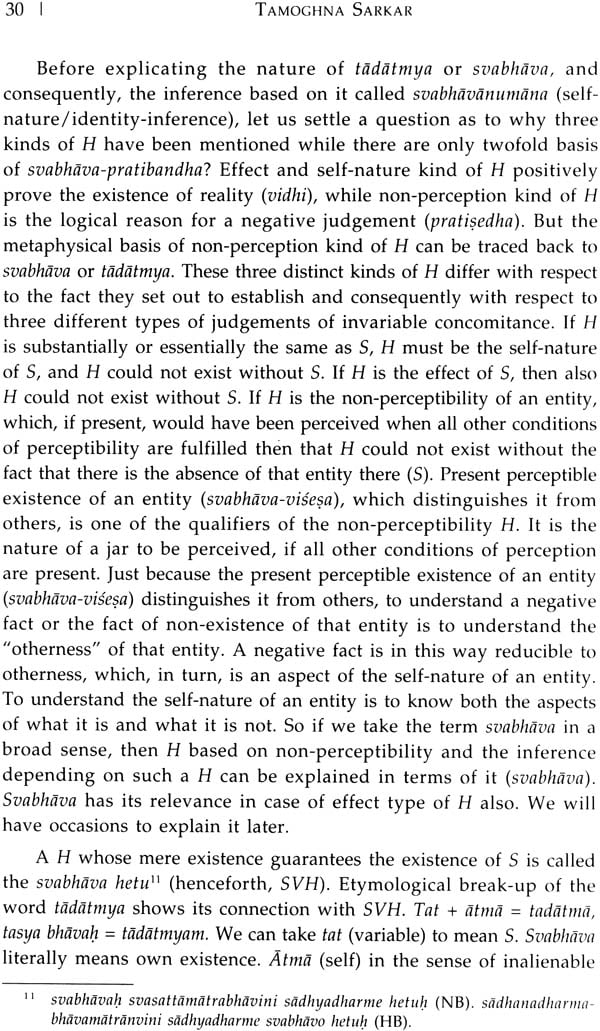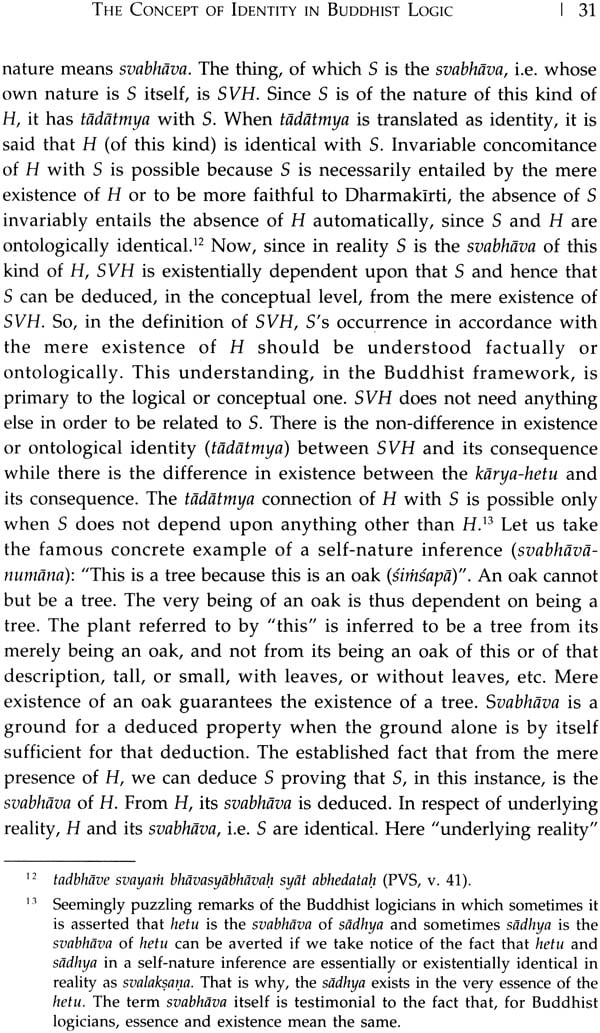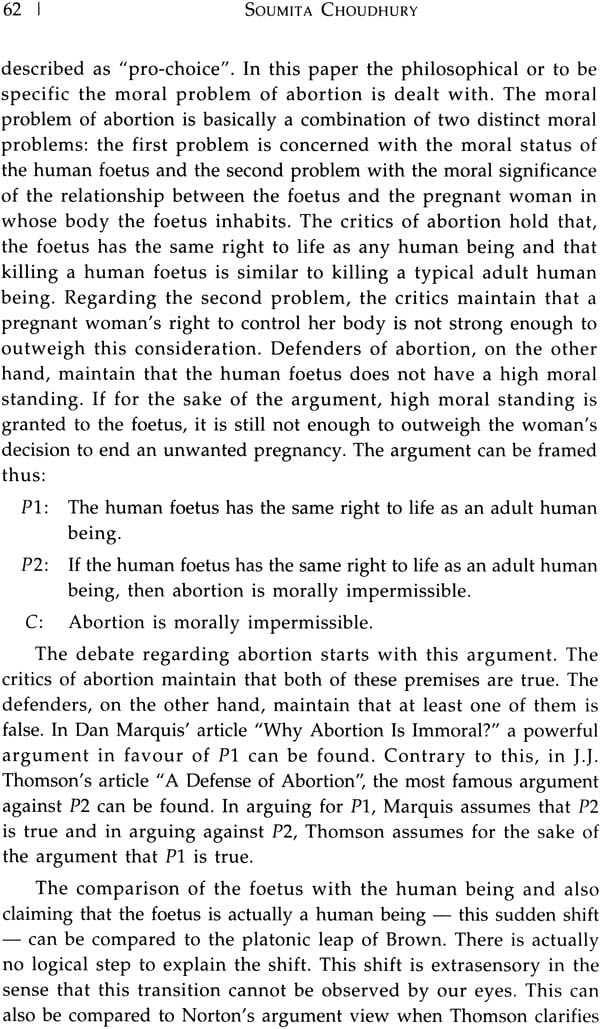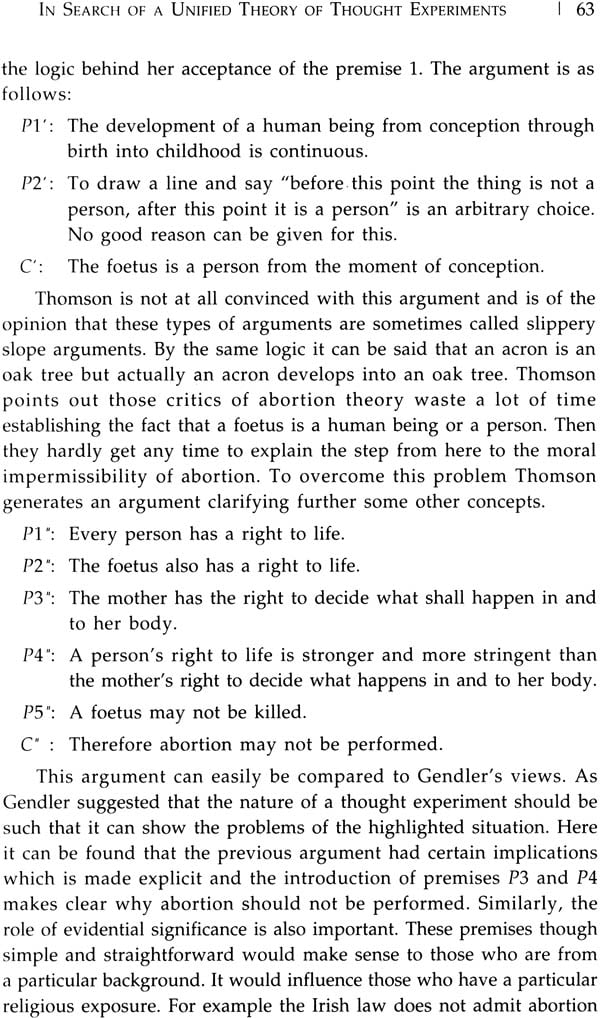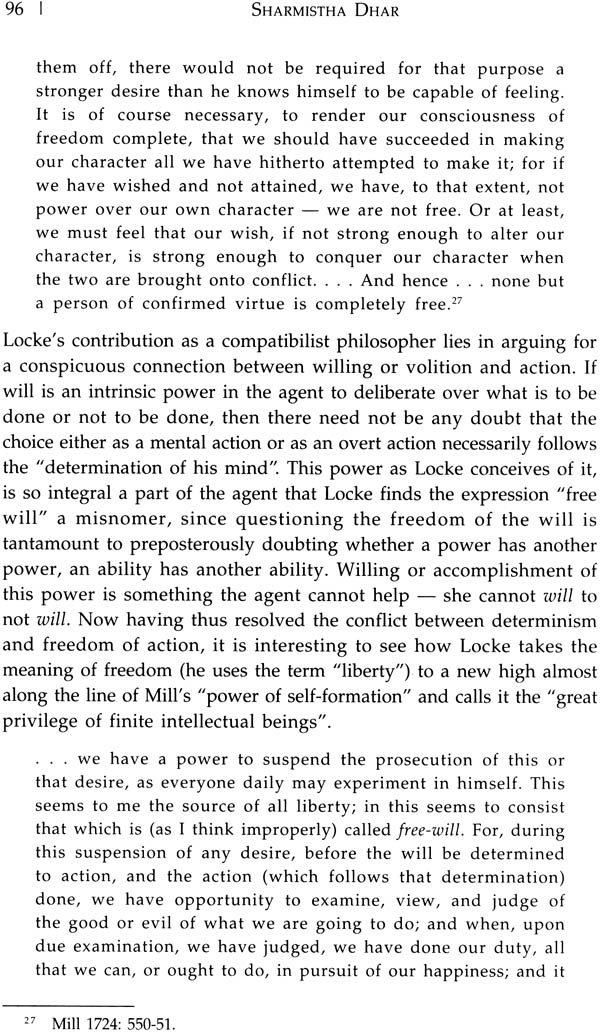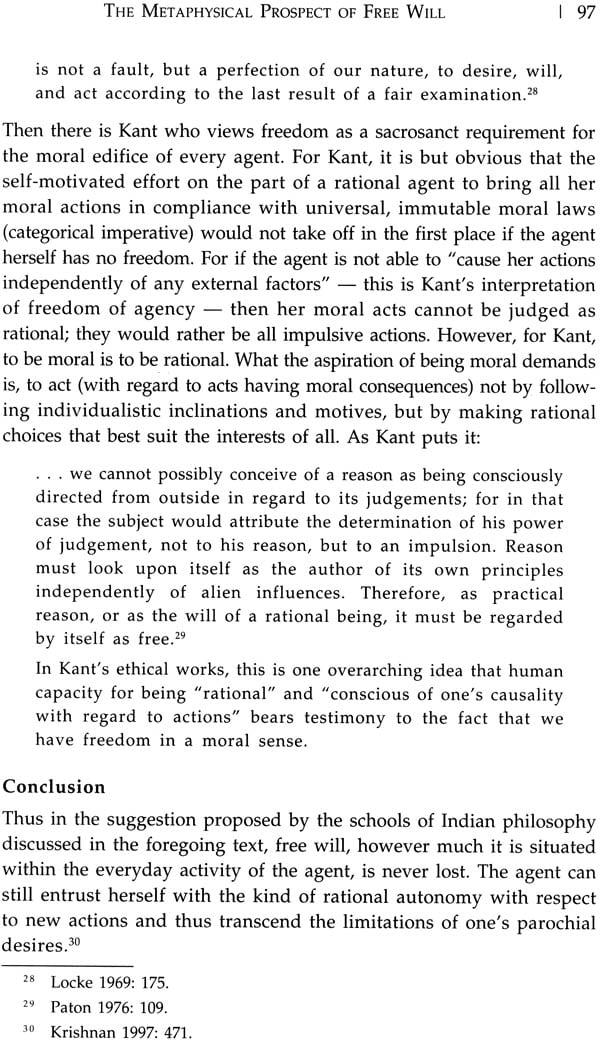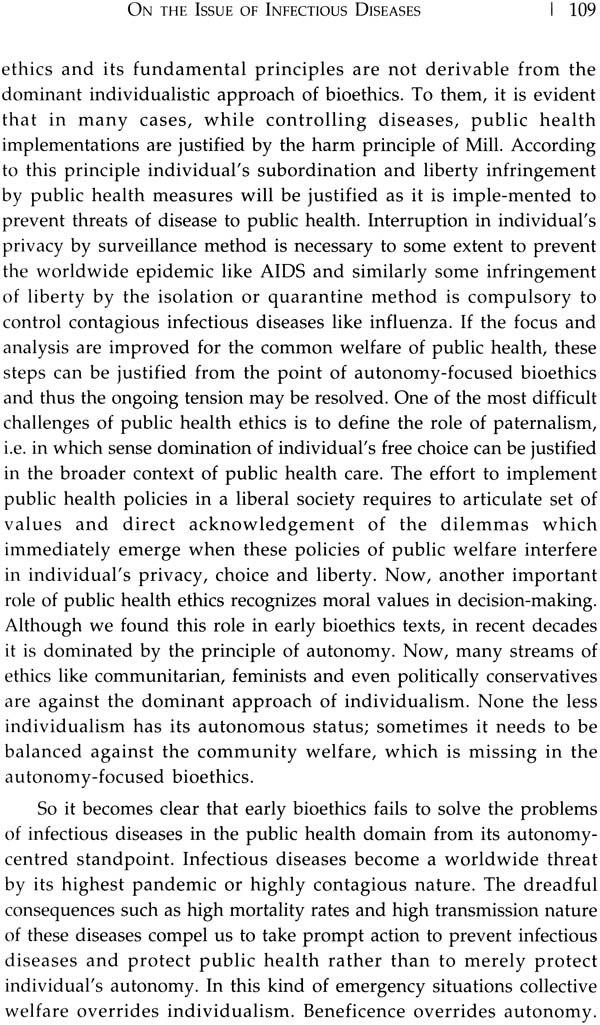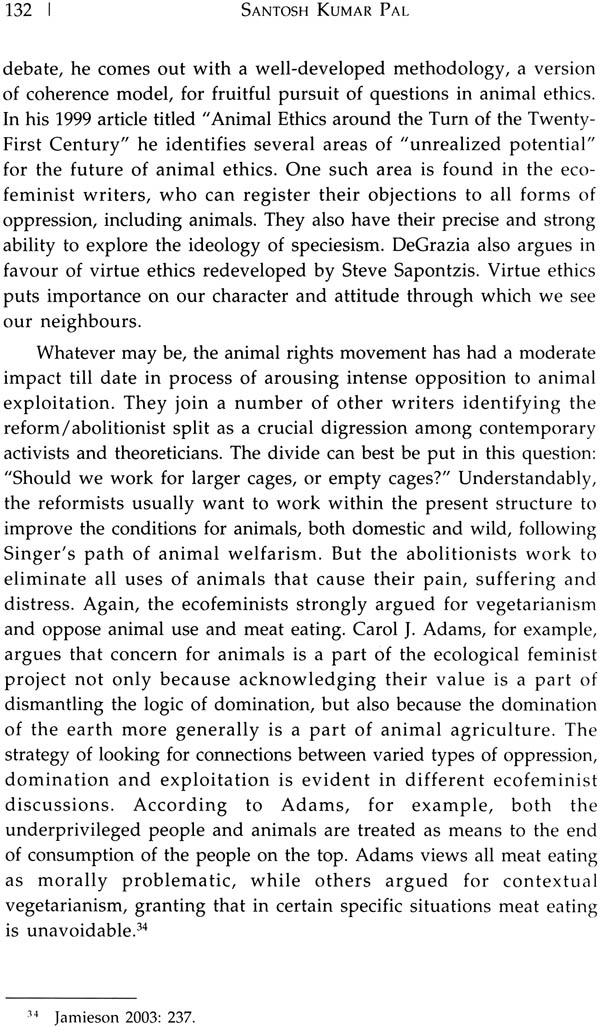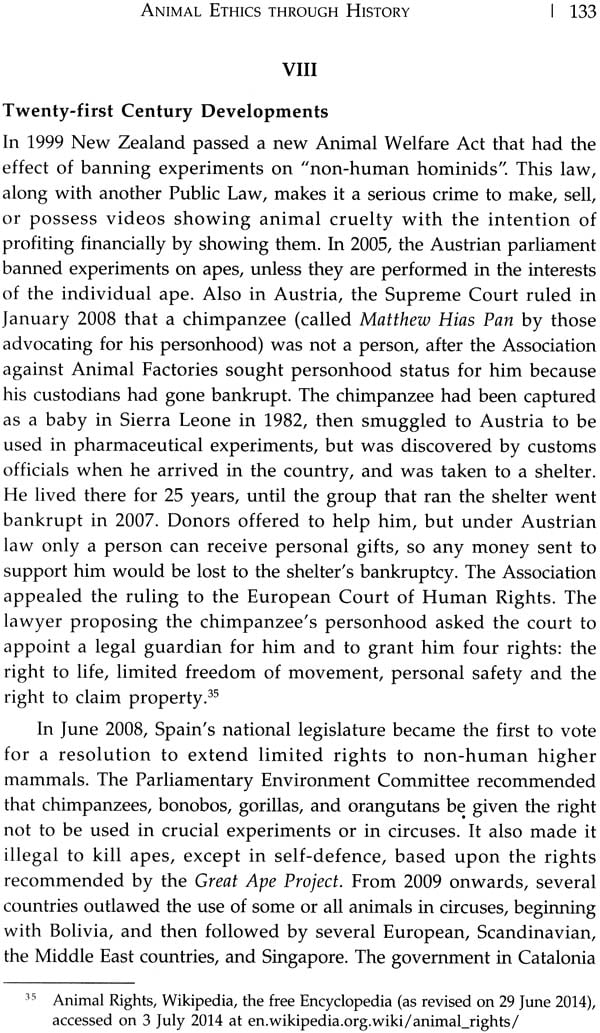
Jadavpur Journal of Philosophy
Book Specification
| Item Code: | NAK756 |
| Author: | Indrani Sanyal & Smita Sirker |
| Publisher: | Department of Philosophy Jadavpur University, Kolkata |
| Language: | English |
| Edition: | 2015 |
| Pages: | 140 |
| Cover: | Paperback |
| Other Details | 9.0 inch X 6.0 inch |
| Weight | 240 gm |
Book Description
Jadavpur Journal of Philosophy is a refereed, bi-issue journal, in English (No.1) and Bengali (No.2) published annually by the Department of Philosophy, Jadavpur University, Kolkata, India. The journal volume in Bengali is titled Darsan Biksa. The journal is devoted to the publication of original scholarly papers in any branch of philosophy. Its objective is to encourage contributions from scholars, dealing with specific philosophical problem connected with their respective fields of specialization.
The call for national control of education in India was a key demand of the Swadeshi manifesto in Bengal during the early phase of the nationalist movement - from 1905 to about 1915. The Dawn Society under the leadership of Acharya Satish Chandra Mukherjee had, sometime in the late 1890s, started examining the deficiencies of the colonial education system and had suggested directional corrections in order to make the system suitable and responsive to the Indian milieu and ethos.
Earlier Swami Vivekananda through his scathing critic of the colonial education system had, in fact, inspired this effort at an educational relook and rethinking. His words and arguments for rethinking Indian education had created the intellectual environment which pushed a number of leaders to look for an Indian alternative to the prevailing system. The Swami, however, was not satisfied with simply dwelling on the issue at the ideational level, he realized the need to spread education among the masses while at the same time evolving a framework of that education which would be in tune with the civilizational ideals and goals of India. It is interesting to note how Vivekananda repeatedly called for the spread of education among the people, how he championed women's education and how he inspired one of the leading Indian industrialists of the epoch, Jamshetji Tata (1839-1904), to envisage a plan for creating an institution of excellence that, through indigenous effort and support, would pursue the goals of scientific research and education in India.
That Vivekananda was acutely aware of issues of educational administration in India and of how the government's spending on education was a meagre amount and how it had destroyed the age old, organically created system of education funding in India is evident from the following brief remark of his, in a letter to one of his Western disciples. The Swami lamented the loss of freedom, the increase in famines, the draining of resources from India and concluded with a reference to the status of education in the country, these few words of his, actually spoke volumes on the plight of Indian education:
All property and lands granted by the previous governments for supporting education have been swallowed up, and the present government spends even less than Russia [Czarist) on education. And what education? The least show of originality is throttled.
Around the same time that the Swami articulated his views on education and Satish Chandra Mukherjee began his early critic of the prevailing system, Sri Aurobindo, then in the service of the Baroda State, had also begun evolving his early thoughts and critic of the system as he experienced it. It was during his stay in Baroda (1893- 1906), that Sri Aurobindo formulated his educational thought, at least in seed form.
It is interesting to note how these three minds - Swami Vivekananda, Sri Aurobindo and Satish Mukherjee - were, in their own way, laying the foundations of the national education movement in India and around the same period.
I propose to look at Sri Aurobindo's advocacy of national education during his active political phase through a reading of some of his speeches and writings on education during that period. I shall not attempt to evolve a position but to show instead how Sri Aurobindo upheld the demand for national education, for Indian control of education, and for the need to establish and develop national education institutions as a vital part of the political demands of the Swadeshi movement.
The official education system imparted a negative and deprecatory self-perception among Indians with regard to their civilizational achievements, cultural and intellectual heights. This became an issue that seems to have disturbed Sri Aurobindo as it disturbed other thought leaders of the epoch. The national education movement thus was one of the principal instruments through which they hoped to counter that perception and reading of India, a perception mainly inspired by an external reading of her life, ways and traditions.
These readings show that Sri Aurobindo pushed the education demand as an integral part of the larger political movement, encouraged the setting up of national schools all over the country and realized the challenges - intellectual and material - that lay before the movement while trying to address them.
In conclusion I also point out that Sri Aurobindo never lost interest in the national education movement or its achievements and saw it as an unfinished agenda of national regeneration and reconstruction to which he still hoped to give his attention.
A Self-Alienating Education: The Intellectual Objectives of Colonial Education in India
The ideologues and thought leaders of the colonial education system in India had a definite intellectual objective when it came to imparting and institutionalizing it within the country. The initiation of a process of de-culturization, self-alienation and a disregard for India's civilizational high water marks among the more articulate sections of Indians, became one of the principal objectives of this educational framework. One of the leading colonial policymakers and ideologues of the 1830s, T.B. Macaulay, for example, famously argued against the imparting of "oriental learning" because he did not find any expert "who could deny that a single shelf of a good European library was worth the whole native literature of India and Arabia".
A letter Macaulay wrote to his father from Calcutta on 12 October 1836 was indicative of the core objective of his education system which was the "natives'" cultural deracination. Macaulay rejoiced at the prospect of his education system gradually serving to alienate those exposed to it from their cultural and civilizational milieu. "Our English schools", he wrote, "are flourishing wonderfully .... The effect of this education on the Hindoos is prodigious. No Hindoo who has received an English education ever continues to be sincerely attached to his religion. Macaulay was of the firm view that this imparting of English, read Western education, would ensure, in the eventuality of the physical empire perishing, the continuation of "that empire" which is the "imperishable empire of our arts and our morals, our literature and our laws".
A reading from another colonial administrator and educationist, an admirer of Macaulay who dwelt in some detail on education in India also reveals the similar intellectual objectives of such an education. Charles E. Trevelyan, in his On the Education of the People of India (1838), argued that one of the chief effects of their education was to generate a sense dependency among all those who had partaken of it. "There is no class of our subjects", wrote Trevelyan, "to whom we are so thoroughly necessary as those whose opinions have been cast in the English mould.:" In order to perpetuate this dependence Trevelyan saw a need to effectuate a civilizational de-linking, which would, in his view, ensure political stability and create a new set of opinion makers who would articulate colonialist positions and perpetuate colonialist readings of India. Trevelyan's views are instructive, in that they help us develop an insight into the essential raison d'etre of the national education movement which came as a counter to such a position:
As long as the natives are left to brood over their former independence, their sale specific for improving their condition is, the immediate and total expulsion of the English. A native patriot of the old school has no notion of anything beyond this: his attention has never been called to any other mode of restoring the dignity and prosperity of his country. It is only by the infusion of European ideas that a new direction can be given to the national views. The young men, brought up at our seminaries, turn to the prospect of improving their national institutions on the English model. Instead of regarding us with dislike, they court our society, and look upon us as their natural protectors and benefactors: the summit of their ambition is, to resemble us; and, under our auspices, they hope to elevate the character of their countrymen. So, far from having the idea of driving the English into the sea uppermost in their minds, they have no notion of any improvement but such as rivets their connection with the English, and makes them dependent on English protection and instruction.
The national education movement essentially saw through these core formulations and objectives of the colonial education system. It grew in strength and graduated into a movement as a challenge to these impositions. It sought to redirect the indigenous "summit of ambition" towards achieving political, educational and economic freedom, and towards national reconstruction. Swami Vivekananda, when he derided the colonial education system as a "negative" one which demoralized the essential Indian nature, when he asked what the goals of Indian education were, was essentially pointing at the adversities generated by this education system; he had clearly perceived its de-culturizing agenda. It was a de-culturization which engendered irreverence for the traditions and a gradual loss of the cultural—civilizational identity.
| Envisioning an Education for India: Sri Aurobindo and the Swadeshi Effort for National Education | 1 |
| The Concept of Identity in Buddhist Logic | 26 |
| In Search of a Unified Theory of Thought Experiments | 51 |
| Consciousness as "Being-in-Time" and Consciousness as "Source of Time" | 70 |
| The Metaphysical Prospect of Free Will in the Light of Deterministic Causation: A Comparative Study from the Perspectives of Some Leading Indian Schools of Thought and Western Philosophy | 83 |
| On the Issue of Infectious Diseases: The Moral Shift from Bioethics to Public Health Ethics | 101 |
| Animal Ethics through History | 111 |
| List of Contributors | 136 |
